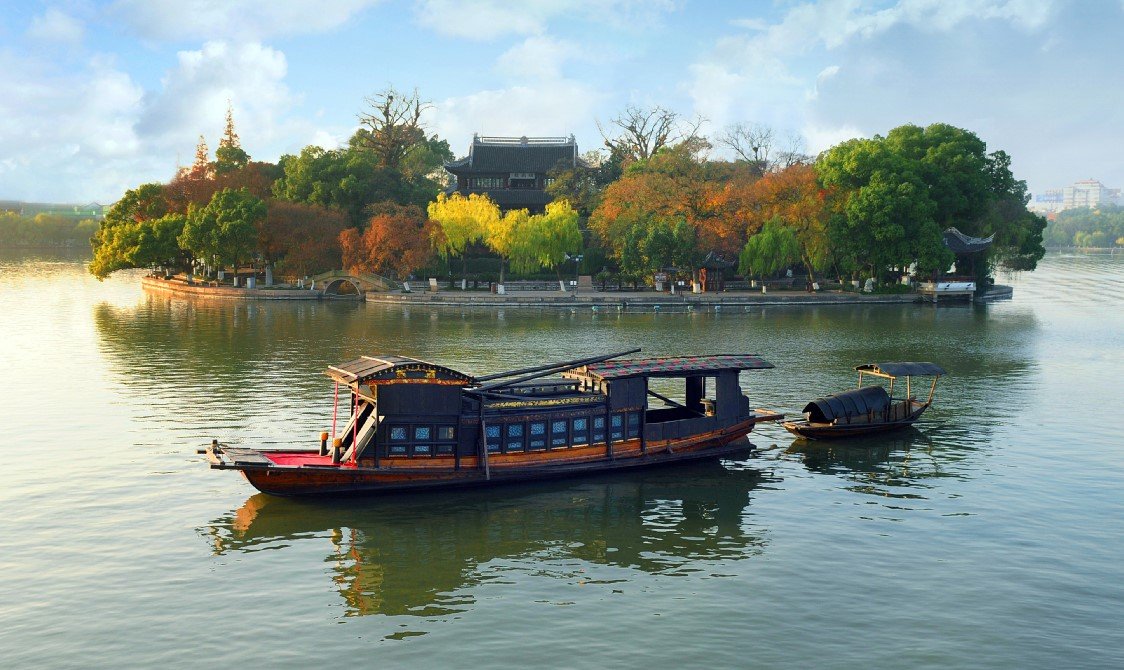Long march from Red Boat

Every time a senior Chinese leader meets a new batch of foreign journalists, he or she invariably encounters a question – what are the secrets of the development miracle of the growing economic superpower? Such questions cropping up in anyone’s mind is absolutely rational. The development of the country, which revolved round its economic uplift, has stunned the entire world. Modern China has shown the world that it is not that impossible to attain around 10 per cent average GDP growth for long three decades at a stretch [China posted average annual GDP growth of 9.91 per cent from 1979 until 2010]. The country’s gradually turning to the production hub for the world has facilitated such a colossal growth for which the credit goes to its industrious law-abiding people, and most importantly to the ruling Communist Party of China (CPC), which steered the nation to the present position.
There is no denying that the destiny of today’s China was written a century ago on July 1, 1921 with the foundation of the CPC in the Red Boat on the South Lake in Jiaxing in Zhejiang province. Twenty-eight years later, the party took control of the country and founded the People’s Republic of China. Immediately after the takeover, the party under the leadership of Mao Zedong launched a campaign to integrate the womenfolk into the mainstream economy. His unforgettable statement – “in China, women hold half of the sky” – still inspires many in the world. And the efforts of the Chinese leaders have paid off; China has secured a gender balance unmatched by any other country of the world with women holding jobs spanning from long-haul truck driving to the top position in state agencies. It is hard to find any woman in China passing her days by doing only household chores or rearing children; everyone is contributing to the economy directly.
The long efforts have earned China the status of the second-largest economy of the world and leading the nation to be the largest one, beating the United States. Global agencies and economists have forecast the Chinese economy will surpass the United States’ in 2030, but it will be no wonder if the country attains the status well before that time.
Now China has been in the top position in many fields, particularly manufacturing sectors. Let’s look at a few sectors. Having almost no significant manufacturing facilities in the electronics sector only four decades ago, the country has now been the largest electronics manufacturer, accounting for 600 billion US dollars of $2.5 trillion global electronics market. No country in the world -- be it highly regulated or unregulated -- can imagine its electronics market without the products of China make. And beginning its automobile industry in the 50s of the last century with the production of only commercial vehicles, the country boasts of the largest automotive industry since 2008 in terms of the production of automobile units. According to www.statista.com, China’s annual production since 2009 has exceeded the combined production of two old car-making nations – the United States and Japan. In 2020, for example, over 25 million units or 28 per cent of the world's cars were manufactured in China. The rise of the Chinese car-making industry has started reshaping the Bangladesh market too where people would prefer reconditioned Japanese vehicles to brand new Chinese cars just several years ago. The situation has changed a lot; several Chinese brands are grabbing the Bangladesh market faster than any other new brands.
China’s development has not remained confined only to economics; all other fields, spanning from education to human quality, from military power to space science, have witnessed the development. Its success in space programmes, as a new member of the elite space club, has surprised the whole world. Beginning its space programmes through the first crewed space programme just 18 years ago in 2003, when an accelerated programme of technological development culminated in Yang Liwei's successful 2003 flight aboard Shenzhou 5, China is now working on plans to establish a permanent space station in 2022, and crewed expeditions to the Moon and interplanetary missions to explore the solar system and beyond. The country has articulated long-term ambitions to exploit earth-moon space for industrial development.
The Chinese happens to be a civilised and disciplined nation since the ancient period. But the more the country has developed, the more its nationals have been disciplined. During my days in Beijing when I was working with China Radio International, there was an agreement among the foreign journalists in the radio station – no matter which country they are from – that any nation in the world can envy China in compliance with laws. You will hardly find any Chinese who tries to breach the law or norms of society, even if he or she is out of the reach of the law enforcement authorities. Such respect for law has made the Chinese one of the most disciplined nations.
Envious of the forward march of China, several influential states have left no stone unturned to hold the country back, but to no avail. The barriers are making the country even stronger. Now it is hard for anyone to imagine where China will reach 50 or 100 years later if the forward march continues.
The present leadership of China, however, does not want to move forward alone; they want to have other nations by them in the unhampered march and are working for the development of mankind. The phrase “The Community with a Shared Future for Mankind” was included in the preamble of the Constitution of China in 2018, manifesting the Chinese leaders’ aim to build a global society with common development. Chinese President Xi Jinping, who is also the general secretary of the CPC, often cites the phrase. The Belt and Road Initiative (BRI), in which China is investing billions of dollars to develop communication infrastructure across continents, will push forward the common development as envisaged by the Chinese leadership.
In a nutshell, the contribution China is making to the development of its own nation and the entire world as well is the result of the founding of the Communist Party of China exactly a century ago in the Red Boat. Long live CPC!
Shiabur Rahman is the executive editor of Bangladesh Post. He can be reached by email – rahmansrdk@gmail.com



